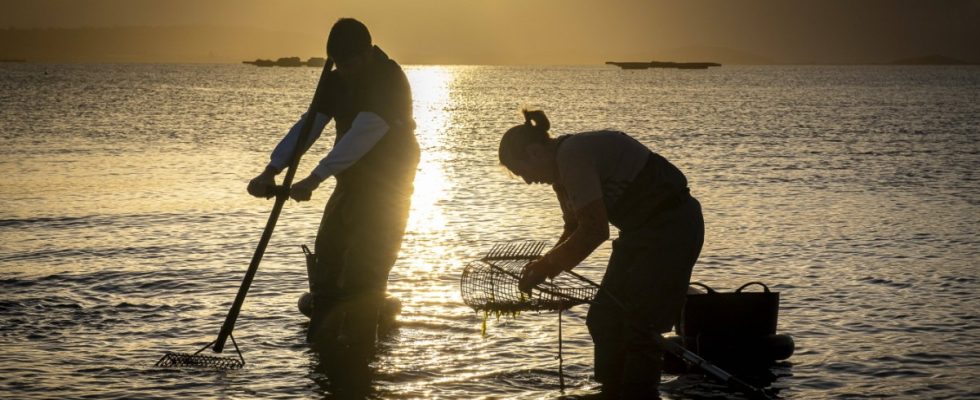3,614 people in northwestern Spain enjoy a special privilege. They have a permit called PE401B issued by the Regional Government of Galicia. This allows them to “fish on foot”. What this means is walking the region’s beaches and harvesting mussels from the mud with a rake and bare hands.
Most of the maritime harvest workers are women who earn extra income from this. What the Mariscadoras unearthed, is highly sought after throughout Spain: It’s not about mussels, but about the much smaller varieties Berber echoes (cockles) and Almejas (Clams). The latter are similar to the Italian ones VongoleThe former look more like miniature versions of the scallop because of their ridged shell.
The same applies to both variants: They are wonderfully tasty and an indispensable part of a Spanish feast, especially not at Christmas. But many Spaniards can start thinking ahead this year. Because the big one is in Galicia Almeia– and Berber echo-Crisis broke out. The women on the beaches find tons of shells, but most of the animals are dead. The harvest this fall was, according to the online newspaper El Confidencial only a quarter of the average for the past ten years.
According to local fishing associations, the main cause was a series of heavy rainfalls in late autumn. So much rain has fallen that the salinity of the seawater has decreased, which is not good for the local mollusks. Several of Galicia’s rivers flushed vast quantities of fresh water into the Rías Baixas, the beach-lined estuaries that extend far inland. “There were places where the salinity dropped to zero,” complains the president of the Pontevedra Provincial Fisheries Association, José Manuel Rosas Otero.
The Berber echoes are extremely tasty, but the heavy rains in the fall have taken their toll on them.
(Photo: Lucas Vallecillos/IMAGO/VWPics)
The swelling rivers also washed many growing mussels out of the sand. There have been attempts to transport the immature molluscs back to the sea so they can mature, but this has been a battle against the tides. In the second half of November there were several Rias closed to protect them for the Christmas harvest. Afterwards, the mussel collectors found more prey again, but they barely managed to meet their daily quota of six kilos.
“Two weeks of closure cannot save the situation,” says Rosas Otero. The whole thing is “a catastrophe of huge proportions,” he complains; on some beaches only a tenth of the usual amount of clams were found. “Many families depend on seafood.” Man-made environmental pollution is not the cause in this case. The head of the association demands that the government must now view this as a natural disaster, “like the volcanic eruption on La Palma”. An aid package is now also needed for Galicia.
Of all things, the rain that was missing elsewhere is now leading to an apocalyptic mood among shell collectors in Galicia and possibly to empty Christmas plates in many households. The first is an existential problem, but the latter is more of just a break with a long-held habit.

